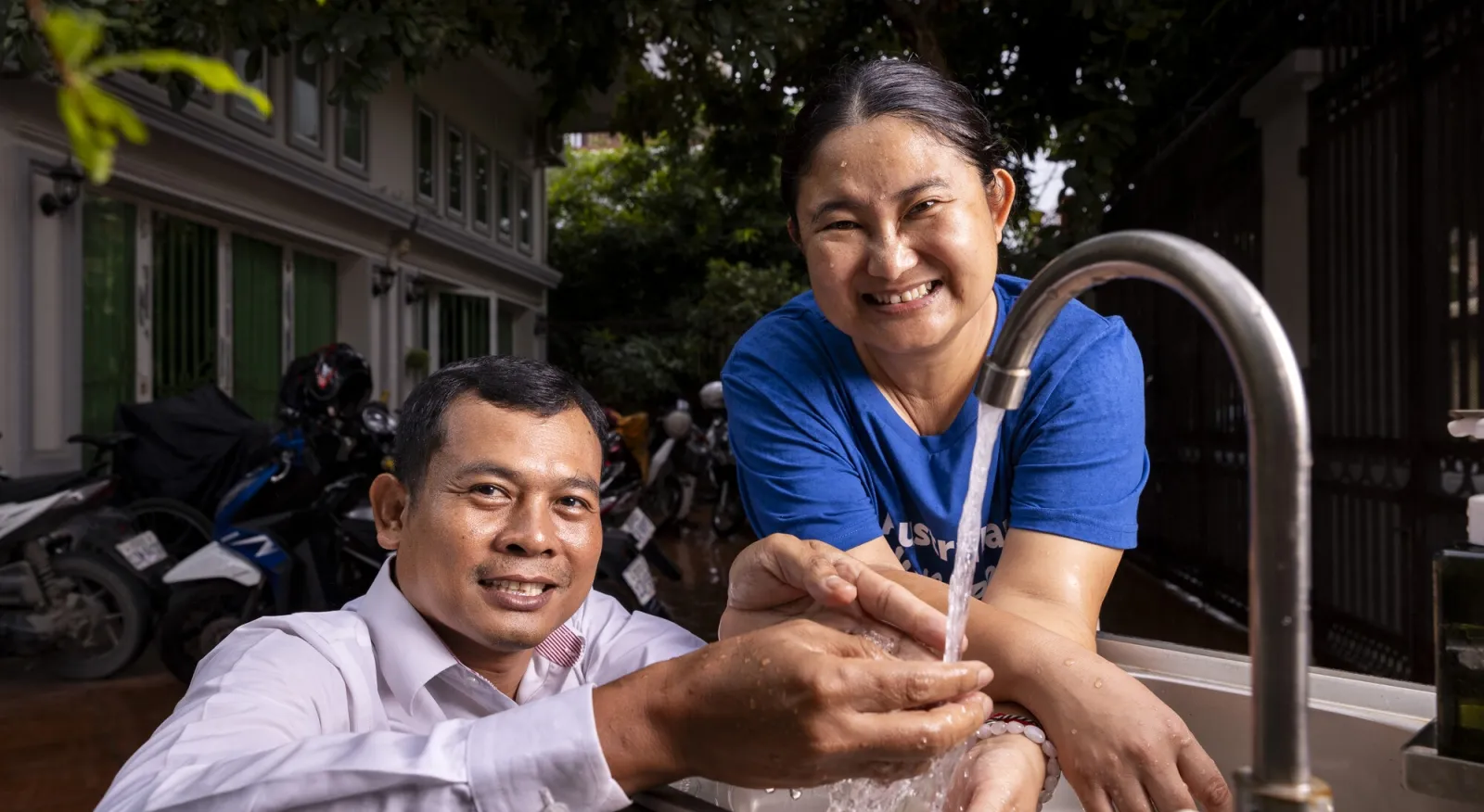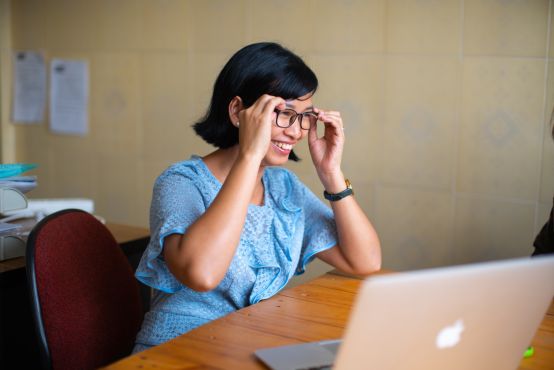
About Cambodia
Cambodia is in South-East Asia and its landscape spans low-lying plains, the Mekong Delta, mountains and coast along the Gulf of Thailand. In the northwest is Tonle Sap Lake, the largest freshwater lake in Southeast Asia, while the central and southern regions feature extensive flat plains, including the Mekong Delta. Cambodia shares borders with Thailand, Laos, and Vietnam.
More than 16 million people live in Cambodia, which is divided into 25 provinces plus the municipality of Phnom Penh. More than 94% of the population is Khmer and more than 95% practice Buddhism. There is a significant Muslim Cham community and indigenous hill tribes in the remote north-east of Cambodia.
Cambodia’s ancient history has left a legacy on the country, evident in the famous Angkor Wat complex, built by the Angkor Empire who rose to prominence in the 9th to 15th centuries. Following this, the area was primarily a Vietnamese vassal state until the French established control in the late 19th century as part of French Indochina. Cambodia gained independence in 1953, but the subsequent years were marked by political turbulence, including the Vietnam War spill over and the rise of the Khmer Rouge regime.
The Khmer Rouge's brutal regime, led by Pol Pot, resulted in the deaths of approximately 1.7 million people through execution, forced labour, and famine. A Vietnamese invasion in 1979 ousted the Khmer Rouge, and Cambodia went through a period of Vietnamese occupation followed by a UN-brokered peace process in the early 1990s. The impact of the Khmer Rouge’s regime has left a lasting impact on the country.
Having regained stability following the trauma and genocide of the twentieth century, Cambodia has begun to rebound with strong growth on the back of four key sectors: textiles, tourism, agribusiness, and construction. According to the UNDP, the incidence of poverty in Cambodia fell from 36.7% to 16.6% between 2014 and 2022, and the number of poor people halved, from 5.6 million to 2.8 million, indicating positive development within the country.
Australian volunteers have supported a wide range of Cambodian partner organisations achieve their development goals since 1992.
Learn more about the Australian Volunteers Program's work in Cambodia.
Key things to consider about volunteering in Cambodia
- Cambodia can get very hot and humid. The country has a tropical climate with distinct wet and dry seasons, the wet season brings heavy rains and very high humidity.
- Cultural sensitivity and awareness with every interaction. Being aware of Cambodia's tumultuous history, including the Khmer Rouge era, is crucial. Many Cambodians, especially older generations, may have experienced trauma during this period, so approach conversations about history and politics with sensitivity.
- There is a different medical care standard to Australia. Hospitals may not be as well-equipped as those in Australia.
- There are different rules on the use of social media for the expression of personal or political views. Volunteers need to be aware of the laws relating to these issues.
- Cambodia offers a wide variety of attractions for those wishing to explore the country; from the world-famous Ankor Wat, to beautiful beaches, and bustling markets filled with delicious food, there is plenty for volunteers to do in their spare time.
Partner spotlight
Hear from our partners at OIC Cambodia about how their team is working to improve communication and swallowing difficulties for children in Cambodia.

Culture and religion
Cambodian culture is deeply rooted in its rich history and tradition. The practice of Theravada Buddhism is pervasive, shaping daily life and customs, from spiritual ceremonies to traditional dances. Family plays a central role in Cambodian society, with strong emphasis on respect for elders and close-knit familial bonds. Khmer cuisine, known for its distinctive flavours, incorporates rice as a staple and reflects the country's agricultural heritage. Cambodia's history, including the devastating Khmer Rouge era, has left an indelible impact, influencing the collective memory and cultural resilience of the Cambodian people. The widespread use of landmines in the Vietnam War and Khmer Rouge era has left Cambodia heavily contaminated with these explosive remnants of war. Efforts have been made to address this issue, but in some rural areas the problem persists.
Religion
Buddhism is practiced by more than 95% of the population, with many following Theravada Buddhism. Religion is part of everyday life for most Cambodians, young and old. Monks are respected, pagodas are located throughout the country, images of Buddha hang in homes above offerings, and temples are attended during religious holidays.
There is also a sizable Islamic community of about 200,000 Cham people, who live mostly in villages to the north of Phnom Penh. There is a very small Christian community in the centre of Phnom Penh. Astrology is widely observed.
Dress
Dress requirements in Cambodia are relaxed, and vary based on social class and location. For foreign women, singlets and shorts are acceptable in cities like Phnom Penh and Siem Reap; outside of these major cities a slightly more modest level of dress is appreciated.
In the workplace, casual dress is considered appropriate. Formal work attire is not common, but it is recommended to have a formal outfit on hand for special occasions.
Dressing modestly is essential when visiting temples. Temples are sacred places of worship, and it is considered disrespectful to dress immodestly. Take off your hat and shoes when entering a pagoda, office, or someone’s home.
Language
Khmer is the official language of Cambodia. French is spoken by older Cambodians and in government circles. Although English is more common with the younger generations, it is not widely spoken. Learning basic phrases in Khmer is strongly recommended as it will it enrich the cultural experience and be essential for communication.
The program provides funding to support language lessons. More information on this process will be available during the onboarding process.
Explore our Pride Guides
LGBTQIA+ program participants must be aware of the country's context before undertaking an assignment. Pride Guides are designed to introduce key issues related to people with diverse SOGISEC and their participation in the program.
Learn more
Day to day life
Climate
Cambodia has a tropical monsoonal climate with distinct wet and dry seasons. The wet season usually begins in May and lasts until late October. The dry season is from November to March. Relative humidity exceeds 80% in the wet season and rarely drops below 70% in the dry season.
In Phnom Penh, temperatures are high throughout the year: in the 20s during January - the coolest month, to about 33-34 degrees during April - the hottest month. Temperatures can reach up to 38 degrees in summer. During the wet season, spectacular storms can flood the streets of the city within minutes.
It is important to note the effects of climate change on day-to-day life and weather patterns in Cambodia. This will look different based on location. According to the World Bank an increased incidence of extreme heat represents a major threat to human health in Cambodia.
Telecommunications
Internet and mobile access in Cambodia are inexpensive, reliable and available throughout the country.
Food and dining
There are plenty of supermarkets available in Phnom Penh. There are some supermarkets in the major provinces like Siem Reap, Battambang, Sihanoukville and Kampong Cham. There are also markets where fresh produce can be purchased.
Drinking is a large part of Cambodian culture, and beer and rice wine are inexpensive.
In larger cities, there are a variety of cuisines on offer including local and western style foods. Vegetarians and vegans will find suitable options in many restaurants but may be more limited with street food.
Accommodation
Volunteers will be supported to find suitable accommodation upon arrival in Cambodia. In most assignment locations, volunteers usually live in furnished apartments in buildings within the CBD.
Find out about our in-country allowances.
Transport
In Phnom Penh and other big cities, public transport is limited and unreliable; the most common and cheapest form of transport for volunteers is a tuk-tuk or taxi.
Ride-sharing apps are the most popular and secure way to travel within main cities and are quite affordable.
Bicycles are a good option if you want to make your own way around, but be aware they often go missing. Walking is generally safe; however, most Cambodians do not walk due to weather conditions.
Motorbikes can be purchased or hired, but you will need to hold an Australian motorbike license and be covered by insurance. Cambodia has one of the worst rates of traffic fatalities in the world; riding a motorbike is only suitable for experienced drivers.
Personal safety
When it comes to your safety and security you must be willing to adapt your behaviour and lifestyle to minimise the potential for being a target of crime. Like anywhere in the world, crime does exist in Cambodia.
Cambodia is generally safe for volunteers, though following sensible precautions and staying alert is always advised. Crime is low, however, it’s still essential to keep your personal belongings safe.
There is a notable increase in crime in the lead-up to major holidays such as Water Festival and Khmer New Year.
Personal safety issues constantly evolve and we recommend you keep an eye on Smart Traveller for current information.
Mobility and accessibility
We’re committed to ensuring that international volunteering is inclusive and accessible to Australians from a range of backgrounds, with diverse perspectives, identities and abilities.
To support this, Access and Inclusion Plans are available for volunteers with disabilities to assess their needs and ensure their living and working requirements are fully considered. Indigenous Pathways is an Indigenous-led program that focuses on providing culturally safe, flexible and tailored support for Aboriginal and Torres Strait Islander volunteers.
Before applying for a volunteering assignment in Cambodia, please do some further research on living in Cambodia and the organisation you are hoping to volunteer with. Successful applicants will have the opportunity to discuss expected living and working arrangements with their recruitment officer.